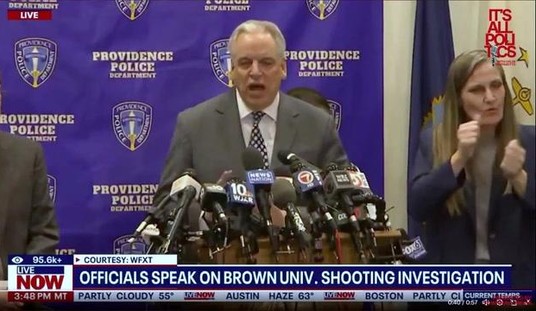I’m sure you’re as relieved as I am that the world did not end yesterday as some were predicting.
But I’m not so sure about tomorrow.
A perfect storm of crises has hit Saudi Arabia in the last year, weakening the economic, military, and cultural foundations of the country to the point that a collapse is not out of the question. It still may be a remote possibility, but an article in Foreign Policy by John Hannah notes that the royal family — the linchpin of Saudi society — may be in big trouble.
King Salman and his son, who serves as defense minister, have come under withering criticism from some other members of the royal family. Two letters by princes were circulated recently, saying that the king and his son “have pursued dangerous policies that are leading the country to political, economic, and military ruin.” The letters called upon higher-ranking princes to stage a palace coup to overthrow the king. This could precipitate a civil war and a collapse of the monarchy — both of which would be disastrous for American interests.
Here are a couple of the crises eating away at the foundations of Saudi society:
* There is great unhappiness in Saudi Arabia over the war in Yemen, which is not only costing the Kingdom in lives and money, but is ruining its international reputation because of the increasing number of civilian casualties and a growing humanitarian crisis.
* The economy, based almost entirely on oil exports, is tanking as the price of oil has collapsed. That means that the budget is out of whack as well because 80% of revenues come from oil sales. The estimated budget deficit for this year alone approaches $100 billion. The Saudis are sitting on a mountain of foreign exchange reserves so they won’t be running out of money anytime soon, but with youth unemployment estimated at 25%, the future of the economy does not look promising.
* The Hajj disasters costing at least 900 lives have resulted in a confrontation with Iran. Threat and counterthreat are being made and it’s unclear whether the Iranians are trying to force a confrontation or just flexing their muscles following their victory over the U.S. with the favorable nuclear agreement.
Hannah’s conclusion is striking:
While the United States may be severely limited in terms of what it can do in the short term to help the kingdom address its mounting challenges internally, it still has significant capability to alleviate some of the rising external threats and pressures that the Saudis face. That is surely America’s comparative advantage: the ability to reassure key strategic partners of our commitment to their security, and our determination to maintain a regional correlation of forces that favors the United States and its friends while deterring our common adversaries.
But that is precisely the role that the Obama administration has so disastrously failed — or, more accurately, refused — to perform over the past several years, in the process undermining the morale and confidence of already fragile friends while super-charging the ambitions and aggression of their worst enemies.
The question now is whether the Obama administration is even capable of recovering from the geopolitical mess it has triggered. Does it even have a clue about the disastrously destabilizing chain of events that have been unleashed by its very purposeful decision to put a “closed for business” sign on Pax Americana in the Middle East? Does it at last understand that what replaces the abandonment of U.S. leadership in the region is not some virtuous equilibrium or balance of power among local competitors, but accelerating levels of violence, extremism, and chaos? Does it have any idea of how it would go about the arduous task of rebuilding the strategic partnerships that its policies have so badly undermined, and stemming the rising tsunami of disorder that now threatens to swamp the region and U.S. interests?
Alas, there’s absolutely no reason to believe that the answer to any of these questions is yes. In which case, the risks will continue to grow that on top of all the other disasters that President Obama will bequeath to his successor, he may yet add one more: an increasingly unstable and perilous situation in Saudi Arabia — the world’s largest exporter of oil, the site of Islam’s holiest sites, and a country awash, in almost equal measure, in advanced American weapons and angry Wahhabis.
Hannah is one of the only analysts I’ve seen who believes that the damage done by this president to American interests is permanent, or at least, long term.Trust, once lost, is difficult to regain and one by one our allies in the Middle East and elsewhere are altering their strategic calculus in dealing with our enemies. They have to survive in a world where America refuses to lead, so they are making new arrangements that will not easily be reversed.
What will the world look like on January 20, 2017? If past is prologue, it will look a lot worse.










Join the conversation as a VIP Member